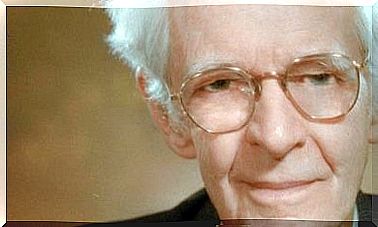Robert Cialdini And The 6 Principles Of Persuasion

Robert Cialdini is a renowned psychologist and researcher at the University of Arizona, USA. He became internationally known after publishing the book “Influence – The Psychology of Persuasion” in 1984.
To write this book, Robert Cialdini worked undercover for three years. He has infiltrated car sales outlets, telemarketing companies, charities and many others. The book brings together all their conclusions and has become a reference for the psychology of persuasion.
All of his works have always been among the best-selling books, according to the New York Times . In addition, Fortune magazine highlighted his works among the 100 smartest published in recent decades. In his book, Cialdini proposed 6 principles of persuasion that are currently being applied in various sectors. They are as follows:
1. Reciprocity, the first principle of Robert Cialdini
During his research, Robert Cialdini proved a principle that many already intuited through common sense. According to their research, people treat others the same way they are treated. So, for example, we tend to be kind to those who treat us kindly. Therein lies great power: we can make a person appreciate us more or less over time.
Advertising makes use of this principle. The reason a brand sometimes offers its products “as freebies” is precisely the principle of reciprocity. They know that consumers appreciate this gesture and will become more loyal to the brand for that reason.

2. The scarcity principle
Robert Cialdini found that people tend to value more what they perceive as rare or unique. It doesn’t matter if it’s really or not. The more rare and unusual something is, the more it arouses our desire.
Advertising also takes advantage of this principle. It is the foundation on which campaigns such as “promotion for a few days” or “discount for first 50 buyers” are built. And that usually works pretty well. On the other hand, a continuous succession of “last opportunities” for the same product ends up dissipating this effect. It is necessary to fulfill what was promised, because scarcity involves credibility.
3. The principle of authority
This principle states that people who have a position of leadership or notoriety enjoy greater credibility among others. People tend to believe everything they say. We tend to be less critical of celebrities, for example.
That’s why there is such a lucrative business around so-called “influencers”. Others identify with them and start to imitate them. In this case, we are less picky about the consistency of what they represent, and we are more likely to believe what they say.

4. Commitment and consistency
Robert Cialdini says that the principle of commitment and consistency implies that people are more willing to take actions consistent with what is familiar. Therefore, it is important to adopt postures that create a commitment to your customer and be consistent with the commitment made. Offer only what you can deliver. It’s easier to keep an old customer than to capture new customers.
This principle of persuasion is very applied in sales. To attract new customers, their behavior and customs are studied to know what kind of offer should be made. If they are, for example, impulsive people, situations are generated that lead them to act impulsively to buy.
5. Consensus or social approval
This principle states that people tend to join the majority: they tend to see what others are doing to act accordingly. We usually accept the majority opinion. If many people believe something is right, we will believe it is right. If the majority believes something is wrong, we will also believe it is wrong.
Thus, both in business and in politics, great efforts are made to “set trends”. These trends are not always inspired by certain or reasonable elements. However, once they start to “build a wave” they are usually successful.

6. The principle of sympathy
This principle has to do with the so-called “halo effect”. It is related to the fact that the most physically attractive people have a greater capacity for persuasion. They are unconsciously associated with other positive values, such as honesty and success. This effect also occurs with people who cause sympathy for attributes other than the physical.
Thus, advertising almost always uses stereotypes that generate this principle of sympathy. Usually models are beautiful or beautiful, or people who represent the appearance that awakens the identification or desire of the public.

Robert Cialdini’s principles of persuasion can be used in many areas of life. However, its biggest impact was in the marketing world. It can be said that contemporary marketing is fundamentally based on the researches of this psychologist.








